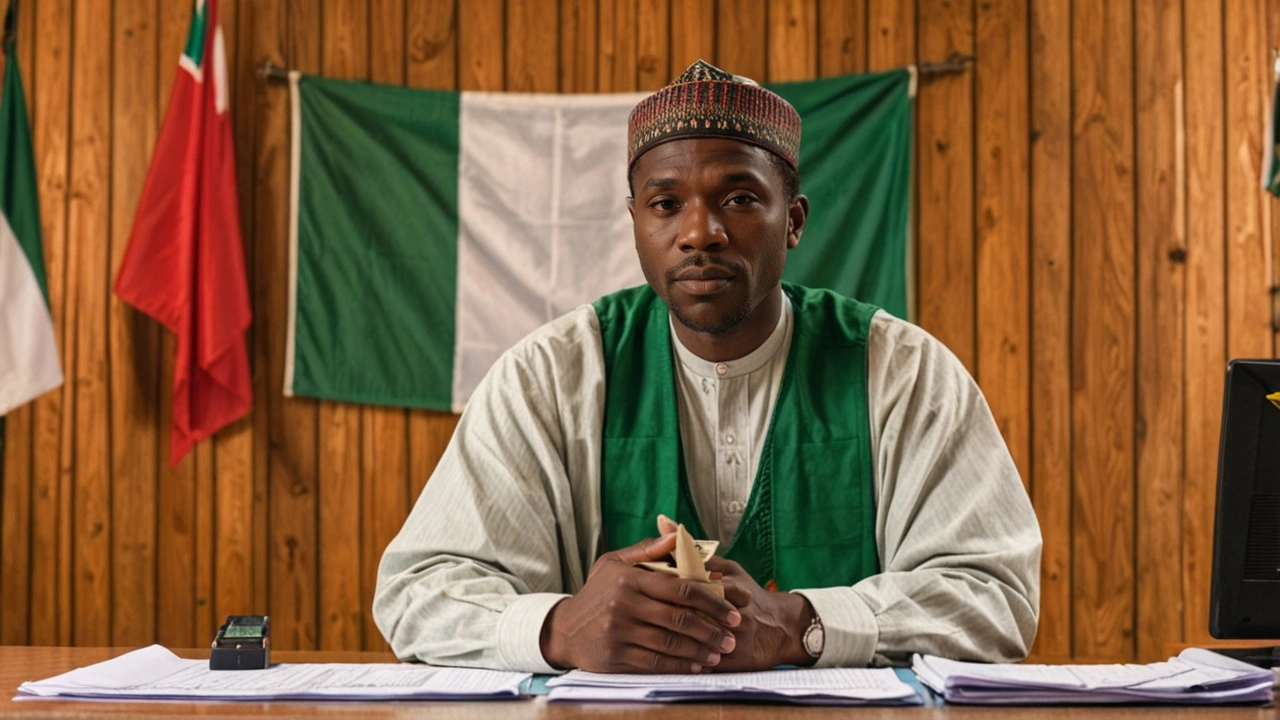Former Power Minister Secures N10 Billion Bail Amidst Allegations of Massive Fraud
In a significant legal development, the former Power Minister has been granted bail to the tune of N10 billion by the court. This decision comes amidst a 12-count amended indictment of money laundering brought forward by Nigeria's Economic and Financial Crimes Commission (EFCC). These charges are part of a larger allegation, implicating the ex-minister in a N33 billion fraud scheme. The bail decision was rendered by Justice James Omotosho, underscoring a critical point in the lengthy legal battle.
The EFCC's allegations paint a stark picture: the former minister is accused of widespread financial impropriety during his tenure. The N33 billion fraud charges highlight concerns about financial misconduct and abuse of official power. This case has garnered significant attention, and the court's decision to grant bail indicates that the legal arguments on both sides will be closely scrutinized in the coming weeks and months.
The Bail Decision
Justice James Omotosho's decision to grant bail, set at N10 billion, demonstrates the gravity and complexity of the case. The amount is significant, reflecting the enormity of the accusations and the potential flight risk perceived by the court. It's a move that balances the former minister's legal rights with the need to ensure that justice can be served effectively and efficiently.
The conditions attached to the bail are stringent, as one might expect in a high-profile case of this nature. The ex-minister is required to surrender his travel documents to prevent any attempt to flee the jurisdiction. Additionally, he must present two sureties of substantial standing who can each post a bond equivalent to the bail amount. This ensures that there are sufficient securities in place to compel compliance with court dates and the legal process.
Reactions and Implications
The bail decision has drawn mixed reactions from various quarters. Supporters of the former minister argue that the bail is a necessary step to ensure fair legal proceedings, emphasizing the principle that one is considered innocent until proven guilty. On the other hand, critics worry that such a high bail amount might set a precedent, making it difficult for justice to be operationally feasible in cases involving substantial amounts of money.
The EFCC has expressed its resolve to continue aggressively pursuing the case. Officials within the commission highlight the importance of addressing large-scale financial crimes, especially those involving public officials. They argue that such cases are critical to maintaining public trust in government institutions and the rule of law.
Background of the Case
The origins of this case date back to the former Power Minister's tenure. Specific details of the alleged fraud have been pieced together through an extensive investigation by the EFCC. It is alleged that the ex-minister used a complex network of financial transactions to divert funds meant for public projects into personal accounts. The total amount allegedly misappropriated is a staggering N33 billion, a figure that underscores the seriousness of the accusations.
The EFCC claims that the funds were siphoned off under the guise of legitimate contracts and financial dealings. These funds, which were intended for crucial power projects, allegedly found their way into shadowy accounts, both domestically and internationally. The investigation has involved numerous financial institutions and has highlighted significant lapses in oversight and accountability.
Legal Proceedings So Far
The legal battle has been arduous thus far, with multiple adjournments and legal maneuvers. The charges have been amended several times, reflecting the ongoing nature of the investigation and the complexity of the financial transactions involved. The EFCC's legal team has been meticulous in building their case, relying on a mixture of forensic accounting, witness testimonies, and digital evidence.
For the former minister, the legal strategy has focused on discrediting the EFCC’s evidence, arguing that the charges are politically motivated. His defense team has called for a fair and transparent trial, asserting that their client has been unduly targeted for political reasons. They emphasize that the financial transactions in question were part of legitimate business dealings, not fraudulent activities.
The Road Ahead
As the case progresses, it will undoubtedly remain in the media spotlight. The outcome holds significant implications for Nigeria's ongoing battle against corruption, particularly within the public sector. A successful prosecution would send a strong message about the government's resolve to combat financial misconduct at the highest levels. Conversely, an acquittal, or failure to prove the charges beyond a reasonable doubt, could undermine public confidence in anti-corruption efforts.
However, no matter the outcome, this case will likely set precedents for how similar cases are handled in the future. The legal arguments, the evidence presented, and the ultimate decision will all inform ongoing efforts to refine and strengthen Nigeria's legal framework concerning financial crimes.
In conclusion, the bail granted to the former Power Minister marks a pivotal moment in an ongoing legal saga fraught with complexities. It is a case that highlights both the challenges and the imperative of addressing large-scale financial misconduct. The coming months will reveal whether the EFCC's allegations hold water and if judicial proceedings will reinforce or shake public trust in the nation's judicial and governmental systems.















